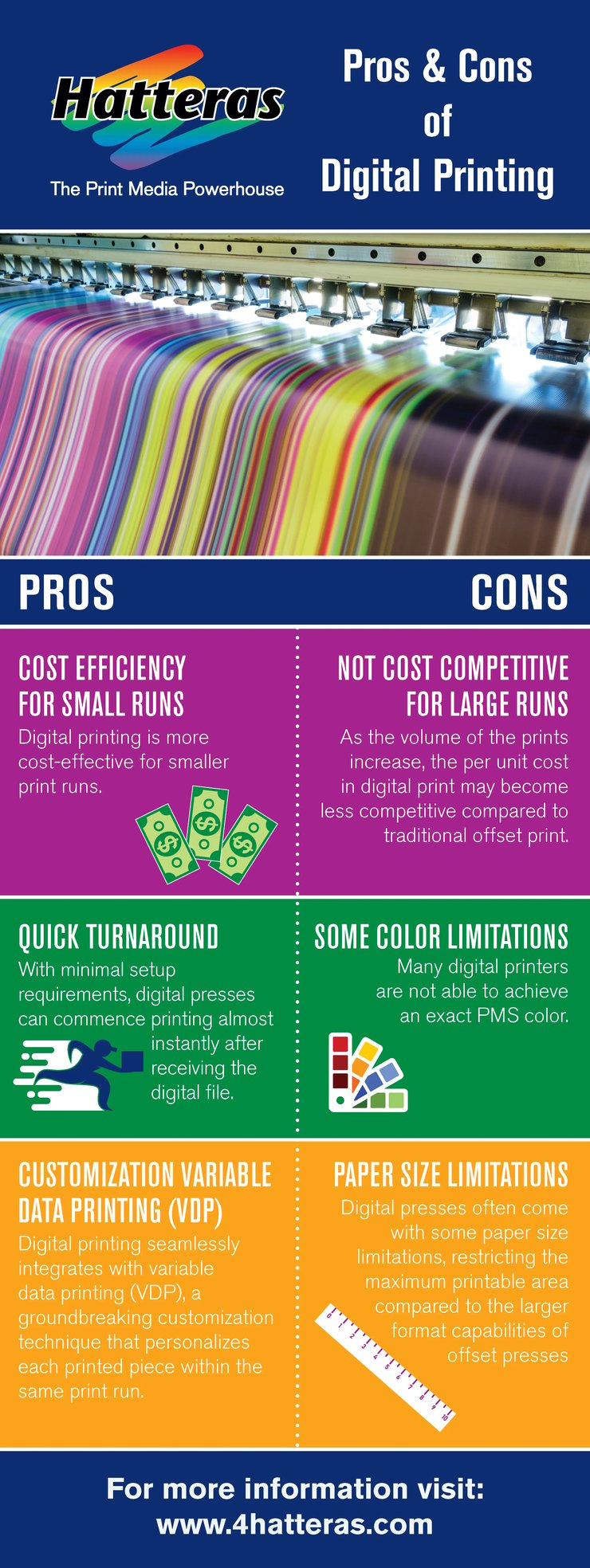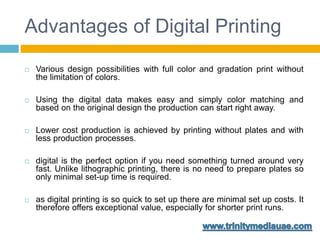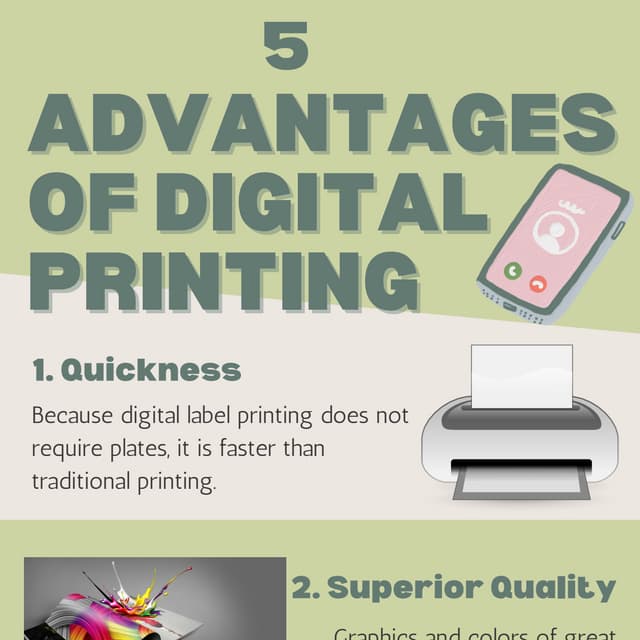The 45-Second Trick For Digital Printing
The 45-Second Trick For Digital Printing
Blog Article
3 Simple Techniques For Digital Printing
Table of Contents6 Easy Facts About Digital Printing ShownDigital Printing Things To Know Before You Get ThisThe Single Strategy To Use For Digital Printing8 Simple Techniques For Digital PrintingOur Digital Printing DiariesUnknown Facts About Digital Printing
Variable information printing, such as direct mail with personalized codes and addresses, is ideally fit for digital printing. Digital quick printing only requires 4 actions of design, review, printing and binding to get every little thing done. Digital fast printing has an unparalleled advantage: print on demand.According to PMMI, electronic printing enables brand names and manufacturers to respond quickly to customer demands while improving the supply chain, minimizing warehousing price and waste, and enjoying faster time to market. That all noises wonderful, yet exactly how does this innovation do all that? The significant differentiator of these technologies is that there are no set up fees and no plates with digital printing.
The Of Digital Printing
This results in quicker turnaround time and reduces expense when using digital printing.
Quick production suggests obtaining your item to market quicker. It additionally indicates it's easier and faster to make adjustments in the future, when you alter a dish, add a SKU, or create seasonal product packaging. Digital printing is highly versatile, so it's simple to make modifications to the package design promptly. It all goes back to home plates.
With conventional printing approaches, short-run printing is just not feasible. Because a terrific style can make or break your item, digital printing constantly creates premium, clear and vibrant graphics each time.
Digital printing is the procedure of printing digital-based pictures straight onto a selection of media substrates. There is no requirement for a printing plate, unlike with offset printing. Digital data such as PDFs or desktop computer posting files can be sent straight to the digital printing machine to print theoretically, picture paper, canvas, fabric, synthetics, cardstock and various other substratums.
10 Easy Facts About Digital Printing Described
According to PMMI, electronic printing allows brands and manufacturers to respond promptly to customer needs while enhancing the supply chain, lowering warehousing expense and waste, and appreciating faster time to market. That all noises excellent, however exactly how does this technology do all that? The major differentiator of these modern technologies is that there are no set-up charges and no plates with electronic printing.
According to Wikipedia, the best difference between electronic printing and standard approaches such as lithography, flexography, gravure, or letterpress is that there is no need to change printing plates in digital printing, whereas in these analog printing methods home plates are repetitively replaced. This results in quicker turnaround time and reduces cost when utilizing digital printing.

How Digital Printing can Save You Time, Stress, and Money.
With standard printing methods, short-run printing is simply not feasible. Because a wonderful style can make or break your product, digital printing continually produces top quality, clear and colorful graphics each time.

According to PMMI, electronic printing allows brands and producers to respond swiftly to customer demands while enhancing the supply chain, reducing warehousing expense and waste, and delighting in faster time to market. That all sounds excellent, yet exactly how does this modern technology do all that? The significant differentiator of these innovations is that there are no set up costs and no plates with electronic printing.
6 Simple Techniques For Digital Printing
According to Wikipedia, the best important link distinction between electronic printing and conventional techniques such as lithography, flexography, gravure, or letterpress is that there is no demand to change printing plates in digital printing, whereas in these analog printing methods home plates are consistently changed. This leads to quicker turn-around time and reduces cost when using digital printing.
Quick manufacturing means getting your item to market quicker. It also indicates it's simpler and faster to make modifications in the future, when you change a dish, add a SKU, or produce seasonal product packaging. Digital printing is highly flexible, so it's simple to make changes to the plan style quickly. It all goes back to the plates.

4 Easy Facts About Digital Printing Shown
Digital printing is the process of printing digital-based images straight onto a selection of media substrates. There is no article source need for a printing plate, unlike with offset printing. Digital documents such as PDFs or desktop computer posting documents can be sent out straight to the digital printing press to publish theoretically, image paper, canvas, fabric, synthetics, cardstock and other substratums.
Report this page